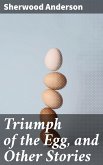In 'True Riches; Or, Wealth Without Wings' by T. S. Arthur, readers are taken on a journey through the intricate world of social class and wealth in 19th-century America. The novel explores the idea that true wealth is not measured by material possessions but by the richness of one's character and relationships. Arthur's writing style is characterized by its moralizing tone and emphasis on virtues such as honesty, integrity, and compassion. The novel serves as a commentary on the corrupting nature of wealth and the importance of leading a meaningful and fulfilling life. It is a classic example of American sentimental literature of the time, with a focus on teaching moral lessons to the reader through storytelling. T. S. Arthur, a prominent American author of the 19th century, was known for his moralistic tales that aimed to educate and inspire readers. His own humble beginnings may have influenced his writing, as he often explored themes of social mobility and the pursuit of true happiness. 'True Riches; Or, Wealth Without Wings' reflects Arthur's belief in the power of inner wealth over material possessions. I recommend 'True Riches; Or, Wealth Without Wings' to readers interested in exploring the moral complexities of wealth and social status in 19th-century America. Arthur's thought-provoking novel offers valuable insights into the true meaning of riches and the importance of living a virtuous life.
Dieser Download kann aus rechtlichen Gründen nur mit Rechnungsadresse in A, B, BG, CY, CZ, D, DK, EW, E, FIN, F, GR, H, IRL, I, LT, L, LR, M, NL, PL, P, R, S, SLO, SK ausgeliefert werden.









